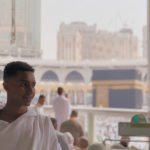In my years of life, the number two has been very symbolic. The birth of my twin brother and I, and my varsity number for the past four years, universally involve the number two. Most importantly, there have been exactly two defining experiences that have made me reflect on a unique quality of myself- my identity.
“I don’t want any trouble, okay?” Imagine being an eight-year-old child, stereotyped by your teacher because of the color of your skin. At that time, my biggest focus in life was to pass the third grade. I loved being at school and in my earlier years I received many awards for my character and my academic achievements. Then came the third grade. I vividly remember being excited for the new school year, meeting up with my friends, and meeting my new teachers. The events that happened on the first day did not meet my joyful expectations. I walked into class with a big smile and I met my teacher who sported a stone-cold look on her face. “I don’t want any trouble, okay? I know how your people are. You’re all loud delinquents who think you don’t have to play by the rules” she said. I looked around unsure of who she was talking about until I slowly realized I was the only person of color in the class. That was the moment the veil of ‘we’re all the same’ was lifted from my eyes. The echo of my teacher’s voice rang as I noticed each and every difference between the people in my class. I kept coming back to the conclusion that I did not belong in her perfect world. I remained quiet, almost speechless for the rest of that day, tears streaming down my face as I ran home. I locked the door to the bathroom and turned on the shower, scrubbing helplessly to remove the dreaded blackness from my skin. What took place that day was only the beginning of a string of events that screamed inequality in this world and forced me to truly understand that I am proud of being black because it is a vital part of my identity. As a Sudanese-American, I am merely a diplomat. For my country and religion that is misrepresented, for my people who are mistreated, and for my culture that is disappearing.
Imagine. Being at the young age of ten and witnessing your mother, the strongest woman you know, break down in tears after being harassed and denied food because of her hijab. On this particular day, I decided to run errands with my mother. We were on our way to the store and I was so happy to help my mother with the groceries. As we approached the marketplace, we were met with glaring eyes. After a couple of steps through the market, I realized that people were not glaring at me, but at my mother. It did not bother my mother but it was all that I could think of. Vendors refused to give her a fair price and they would explicitly tell her, “I don’t sell my products to terrorists.” While this really upset me, my mother, being as cool and collected as she always is, continued her shopping with a smile on her face. I asked my mother how she could smile despite the negativity around her and she replied: “This is the best way I can express myself for what I believe in, the hijab is my hijab and is on my body, not theirs. I smile at the faces of the ignorant because they are scared for what they do not know.”
My identity is defined through its duality. Being a black male in a society where people like myself are expected to be a statistical anomaly with no hope of survival and being a Muslim who witnesses the constant harassment that my mother endures for wearing her hijab define my identity. Despite the challenges, I am grateful that my identity has enabled to not only love my beliefs and others, but most importantly- love myself.


